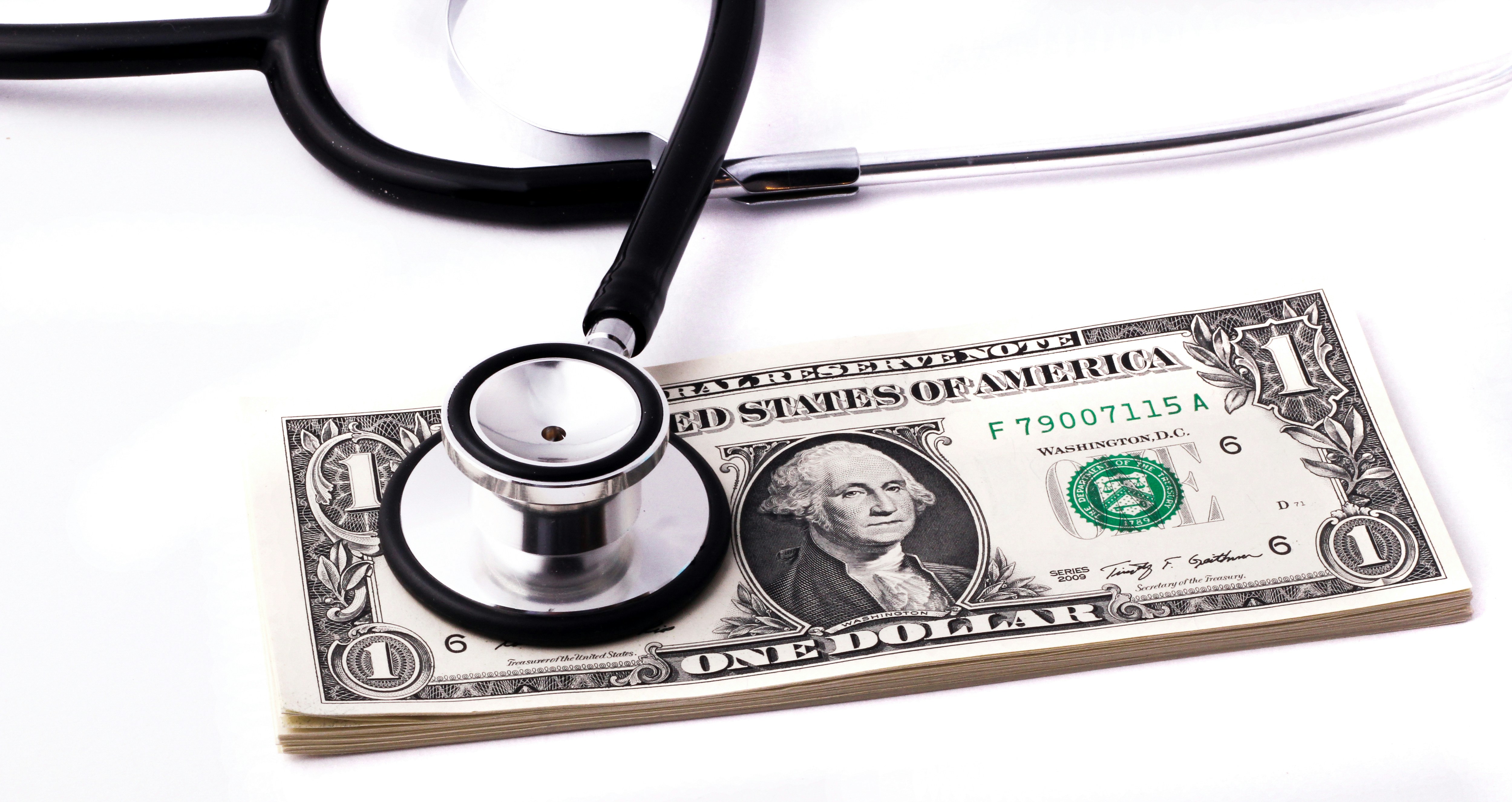Introduction to Health Insurance and Dental Coverage
Health insurance encompasses a wide range of services aimed at promoting and maintaining an individual’s overall health. However, the question of whether health insurance covers dental services remains a pertinent topic for many consumers. It is essential to understand that health insurance and dental insurance serve different purposes and often have separate policies tailored to distinct aspects of healthcare.
Health insurance typically focuses on medical needs, addressing conditions that affect overall health, including surgeries, hospital visits, and emergency care. In contrast, dental insurance specifically caters to oral health, covering services such as routine check-ups, cleanings, and treatments for various dental issues. Many individuals may not be aware of the specific provisions under their health insurance policy regarding dental coverage, leading to confusion and potentially unmet healthcare needs.
Understanding the intricacies of both health and dental coverage is crucial for consumers. For instance, while some health insurance plans may include limited dental services, they typically do not cover more comprehensive dental treatments. Familiarizing oneself with the details of both insurance types can help individuals grasp potential overlaps, where certain dental treatments could be deemed medically necessary and, therefore, potentially covered under their primary health insurance. Additionally, consumers should be aware of any gaps in coverage that might require supplemental dental insurance to ensure comprehensive care. It is beneficial to carefully review policy documents and consult insurance providers to clarify what is included in their coverage. This proactive approach enables individuals to make informed decisions about their healthcare options, particularly concerning dental needs, and contributes to a better overall understanding of what health insurance covers in relation to dental services.
Types of Health Insurance Plans
When navigating the realm of health insurance, it is crucial to understand the various types of plans available and how they may include dental coverage. The primary types of health insurance plans include Health Maintenance Organization (HMO), Preferred Provider Organization (PPO), Exclusive Provider Organization (EPO), and Point of Service (POS) plans. Each plan has unique characteristics regarding cost, provider access, and coverage options, including dental benefits.
HMO plans tend to require members to choose a primary care physician (PCP) and obtain referrals for specialist services. Within HMO networks, dental coverage may be included, often requiring that patients visit specific dental providers. Conversely, while HMO plans might offer lower premiums, the restriction to in-network providers can limit choices regarding dental providers, potentially impacting access to certain treatments.
PPO plans are more flexible, allowing members to see any healthcare provider without a referral. This flexibility often extends to dental coverage as well. Although dental services may be included in a PPO’s overall health benefits, the extent of coverage can vary widely, and members may find that using out-of-network dental providers results in higher out-of-pocket costs. Thus, members should carefully examine the plan’s summary of benefits to understand what dental services are covered.
EPO plans combine elements of both HMO and PPO plans. They typically do not require referrals and likely cover dental services, but only through network providers. Therefore, understanding the list of covered dentists becomes essential for enrollees looking for comprehensive dental coverage.
Lastly, POS plans blend the characteristics of HMO and PPO plans. They require members to select a primary care physician but offer some out-of-network coverage. This can include dental benefits, making it vital for members to analyze how these plans cater to their dental care needs. Exploring each plan type in detail will help individuals ascertain whether their health insurance adequately addresses dental coverage, reflecting the variation present in health insurance policies.
What Does Dental Coverage Entail?
When considering the question of “does health insurance cover dental,” it is essential to understand what dental coverage typically encompasses. Dental coverage is designed to assist policyholders in managing the costs associated with various dental care services. Generally, dental insurance can be categorized into three main areas: preventive care, basic procedures, and major procedures.
Preventive care is often the foundation of most dental insurance plans. This category includes services that aim to prevent dental issues before they arise. Common preventive care services typically covered include routine examinations, teeth cleanings, and X-rays. These services are generally provided at little to no cost to the insured, encouraging regular check-ups to maintain oral health. Preventive care is crucial, as it can help identify potential problems early on and reduce future treatment costs.
Basic procedures are the next level of dental services usually covered under dental insurance. These can include treatments such as fillings, extractions, and periodontal care. While basic procedures may involve a larger cost than preventive services, they are typically covered at a percentage stated in the insurance policy. Policyholders should be aware of any applicable deductibles or co-pays associated with these procedures. Furthermore, limitations might exist concerning the frequency of specific treatments within a policy year.
Lastly, major procedures such as crowns, bridges, and oral surgery are also covered under many dental insurance plans. However, the coverage for these procedures can vary significantly. Often, they may require pre-authorization, and there could be waiting periods before coverage kicks in. Major procedures generally have higher out-of-pocket costs relative to preventive and basic care, which may necessitate further financial planning on the policyholder’s part.
Understanding the types of services included in dental coverage, as well as any limitations or exclusions, is vital for making informed decisions about maintaining dental health. Policies can differ widely, so thorough review of individual plans is encouraged.
Exploring Standalone Dental Insurance Policies
Standalone dental insurance policies provide dedicated coverage specifically for dental services, unlike health insurance plans that may offer limited dental benefits. These policies cater to the unique needs of dental care and can often include a broader range of services tailored to oral health. Typically, standalone dental plans cover routine check-ups, cleanings, fillings, and sometimes major procedures like crowns or root canals. Understanding these policies can help individuals and families make informed decisions regarding their dental health needs.
One of the primary benefits of standalone dental insurance is the potential for more comprehensive coverage. Health insurance plans often focus on medical services, meaning that dental coverage may be minimal or non-existent. With standalone policies, patients can receive specialized care without worrying about limitations common in health plans. Additionally, these policies frequently come with a network of dental providers, allowing insured individuals to choose their preferred dentists and specialists.
Another important distinction is the cost structure associated with standalone dental insurance. While some health insurance plans may require higher premiums for dental coverage, standalone policies may offer more affordable options tailored to different budgets. This can make dental care more accessible for patients who prioritize oral health and preventive services. Furthermore, standalone dental insurance may include benefits like no waiting periods for preventive care, which is advantageous for those who seek regular dental check-ups.
In contrast with dental coverage included in health insurance, which often limits the extent of services covered, standalone dental insurance provides an opportunity to enhance overall dental care. To summarize, those wondering “does health insurance cover dental” should consider exploring standalone dental insurance policies as a viable alternative, particularly if comprehensive dental care is a priority.
Common Exclusions in Dental Coverage
When examining the question of whether does health insurance cover dental, it is essential to be aware of the common exclusions that can significantly affect your overall coverage. Many health insurance plans have provisions specifically tailored for dental services, yet these can come with limitations. Understanding these exclusions can help ensure that you fully grasp which services are not included in your policy.
One of the primary exclusions in dental coverage is related to cosmetic procedures. Health insurance typically does not cover treatments that are deemed aesthetic in nature, such as teeth whitening, veneers, or orthodontic treatments intended to modify appearance rather than function. This is rooted in the belief that cosmetic dentistry does not fall under necessary medical care, thereby rendering such procedures ineligible for insurance reimbursement.
Another common exclusion pertains to pre-existing conditions. If an individual had dental issues prior to obtaining their health insurance policy, it is likely that any treatment required for those conditions will not be covered. Insurers often consider these to be ongoing issues, which are outside the scope of new policies.
Preventive care frequently garners coverage; however, certain conditions can limit access. For example, some plans might not cover fluoride treatments or sealants for adults, and care for missing teeth may also be excluded in dental coverage. These limitations vary by policy and provider, and can create confusion regarding the actual benefits available.
Lastly, it is important to recognize that not all dental services necessary for oral health are covered. Many routine procedures, such as extractions or root canals, may have restrictions or caps on coverage. Understanding the full breakdown of what your health insurance offers—as well as its limitations—can assist you in making informed decisions about your dental care needs.
How to Check Your Dental Coverage
To determine if your health insurance plan includes dental coverage, it is essential to follow a clear and structured approach. Start by locating your health insurance policy documents, which may be available in both digital and physical formats. These documents often outline your benefits and may indicate whether dental coverage is included as part of your health plan.
Once you have obtained your policy documents, look for a section that details your benefits. This section typically provides information on what services are covered, including preventive, basic, and major dental procedures. Pay particular attention to any mentions of dental benefits, as some health plans offer limited or supplemental dental coverage. Identifying this section can help you understand what dental services may be available under your health insurance.
If your policy documents use complex language or jargon that is difficult to comprehend, it may be beneficial to reach out to your health insurance provider directly. Most insurance companies have dedicated customer service lines where representatives can clarify coverage details. Prepare specific questions regarding dental coverage, such as whether routine check-ups and cleanings are covered or if orthodontic work is included. Such inquiries can guide you through the nuances of what is covered.
Additionally, you may also check your health insurer’s website, which often contains valuable resources. Many insurers provide online tools allowing policyholders to view their benefits, including dental coverage. If available, using these online resources can further simplify the process and provide a comprehensive view of your health plan.
Understanding whether your health insurance covers dental services is crucial for both financial planning and maintaining your oral health. An informed approach will help clarify any ambiguities in your policy regarding this important aspect of healthcare.
Cost Implications and Out-of-Pocket Expenses
Understanding the cost implications of dental care under health insurance policies is essential for individuals seeking to manage their healthcare expenses efficiently. Typically, health insurance plans that include dental coverage involve various financial components such as premiums, deductibles, copayments, and potential out-of-pocket expenses. It is vital to examine each of these elements to gain a comprehensive understanding of how much one might need to spend on dental care.
Firstly, premiums are the amounts that individuals pay to maintain their health insurance coverage on a regular basis. These costs can vary widely depending on the specific policy and the extent of dental coverage included. In some cases, dental coverage may only be partially included, meaning individuals should carefully assess whether the premiums are reasonable relative to the benefits offered.
Deductibles also play a significant role in the overall cost structure. A deductible is the amount policyholders must pay out-of-pocket for dental care before their insurance starts contributing to expenses. This can be a deciding factor for individuals when evaluating whether their health insurance cover dental procedures adequately, as higher deductibles may discourage regular dental visits due to financial constraints.
Furthermore, copayments are additional costs that arise whenever individuals seek dental services. Depending on the specific treatment, the copayment can vary significantly. It is essential to familiarize oneself with these charges as they contribute to the overall expenses associated with dental care under health insurance.
Ultimately, out-of-pocket expenses can accumulate quickly, especially if individuals require extensive dental work. Individuals should be proactive in understanding their health insurance policy specifics and whether it covers dental services satisfactorily to prevent unexpected financial strains. Assessing these cost implications is crucial for making informed decisions regarding dental care and health insurance options available to individuals.
Real-Life Examples and Case Studies
Understanding whether health insurance covers dental procedures can be challenging, given the variability in plans and coverage specifics. Several real-life examples can elucidate how different plans address dental care, thereby providing practical insights for individuals navigating their own insurance options.
For instance, consider a case involving Sarah, a 34-year-old teacher, who has a comprehensive health insurance plan that includes dental coverage. After experiencing severe tooth pain, she visited a specialist who diagnosed her with a cavity requiring a filling. To her surprise, Sarah discovered that while her health insurance plan did cover the dental visit, it only partially covered the cost of the filling. This example reflects a common scenario where plans may extend dental coverage but with limitations on procedures, emphasizing the importance of reviewing plan specifics.
In another case, John, a 45-year-old engineer, had a health insurance plan that explicitly excluded dental coverage. After breaking a tooth during a weekend soccer game, he learned that he would have to pay for all treatment costs out-of-pocket. This instance illustrates the need for individuals to clearly understand their health insurance policies and discern whether they provide dental coverage or necessitate separate dental insurance.
Additionally, a study on family insurance plans highlighted that while some group policies offer combined health and dental coverage, others operate on a pay-per-visit structure. Participants noted that their families benefited from separate dental insurance policies, which often resulted in lower out-of-pocket expenses for regular check-ups and major dental work, compared to when relying solely on health insurance. These examples underscore the diverse nature of health insurance plans and their treatment of dental care, prompting prospective policyholders to engage in a thorough exploration of their options. By doing so, they can make informed decisions about their coverage needs and the potential costs associated with dental procedures.
Conclusion: Making Informed Decisions About Dental Coverage
In evaluating the question of whether health insurance covers dental, it is crucial to thoroughly understand the nuances of your insurance policy and dental care needs. Not all health insurance plans provide comprehensive dental coverage, as dental care is often treated separately from general health care. Many individuals may find themselves in situations where they need specific treatments or preventative care, prompting the need for additional dental insurance. Understanding the particulars of different plans, including what services are covered and to what extent, is essential.
As discussed, basic plans might only cover emergencies or essential services, while more comprehensive plans can include preventive care like routine check-ups, cleanings, and more advanced procedures. It’s also important to recognize the limitations of your coverage, such as caps on annual benefits or exclusions for certain types of dental work. Engaging with your health insurance provider can provide clarity on these issues, directly answering the question, “does health insurance cover dental care?”
In making informed decisions about your dental coverage, consider your dental health history and the potential costs of out-of-pocket expenses. Preemptive steps, such as understanding the differences between types of coverage and proactively seeking plans that align with your dental care needs, can lead to better health outcomes and financial stability. With the right knowledge of your health and dental insurance options, you can navigate the complexities of dental care, ensuring you have appropriate coverage to maintain your oral health over time. Overall, being proactive in understanding your coverage can help you secure the dental care you need without the burden of unexpected costs.







